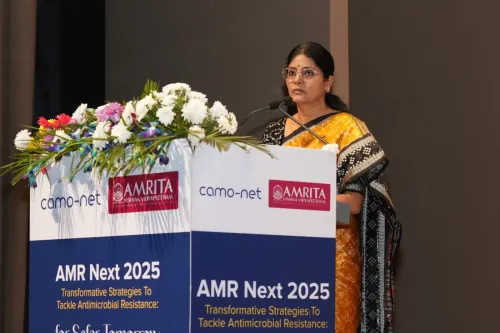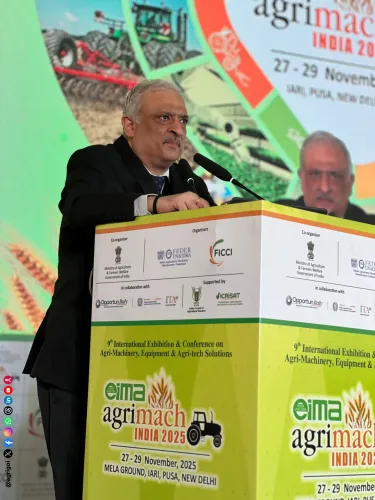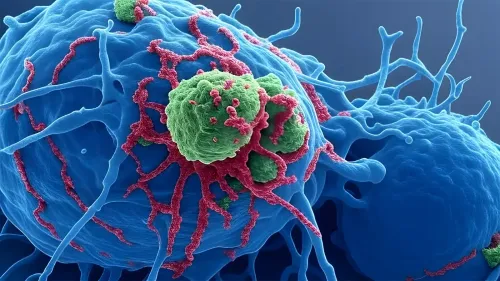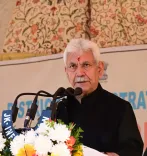How Did India's Study on Nutrition Affect TB Outcomes Globally?
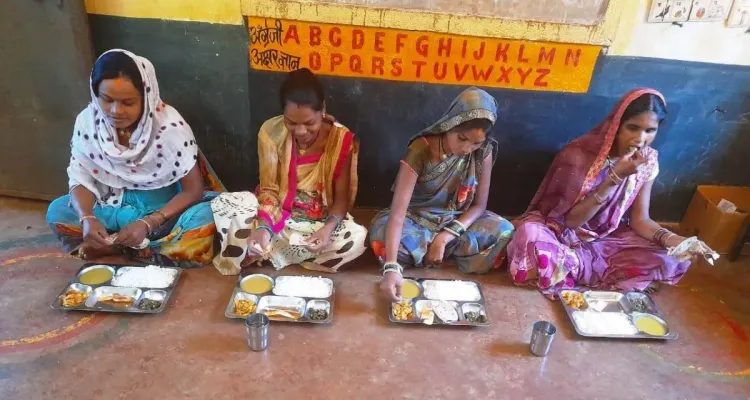
Synopsis
Key Takeaways
- Nutrition plays a crucial role in improving TB outcomes.
- The study provides first-time evidence for enhancing nutritional support.
- WHO emphasizes the need for collaboration and innovation in TB research.
- Equitable access to treatments and diagnostics is critical.
- The rise in drug-resistant TB is a significant concern.
New Delhi, Aug 6 (NationPress) A study conducted by India has revealed the significant role of nutrition in improving outcomes for tuberculosis (TB), contributing valuable insights to global strategies against this highly infectious disease, as highlighted by the World Health Organization (WHO). The WHO emphasized the necessity for increased research and innovation in the ongoing battle against TB.
Directed by the Indian Council of Medical Research (ICMR), this study, carried out in Jharkhand, is the first to demonstrate that enhancing nutritional support can effectively reduce both the incidence and mortality of TB in India.
The WHO acknowledged that “the outcomes from India’s RATIONS study on nutrition's effect on TB outcomes and disease incidence have been instrumental in shaping global guidance,” during a recent three-day virtual workshop.
The organization also called on the South-East Asia region, which bears the highest burden of TB cases and deaths globally, to urgently advance research and innovation to meet the End TB goals.
“In our Region alone, approximately 5 million individuals contracted TB, leading to nearly 600,000 fatalities in 2023,” stated Dr. Catharina Boehme, Officer-in-Charge, WHO South-East Asia Region.
“Realizing the ambitious targets set in the WHO End TB Strategy necessitates collaborative efforts to fast-track research and innovation. It requires the adoption of new tools, technologies, and medications, ensuring timely and equitable access to these innovations is essential for large-scale impact, leaving no one behind,” she emphasized.
The WHO reported notable advancements in the South-East Asia Region, including an increase in TB case notifications in 2023, indicating recovery from setbacks caused by the Covid-19 pandemic.
However, the progress remains inadequate to achieve the targets established by the End TB Strategy.
Post-Covid-19, TB has once again emerged as the leading cause of death from a single infectious agent, according to the WHO. The disease disproportionately affects the poorest and most vulnerable populations, worsening existing inequalities.
In response, “countries in the Region are increasingly adopting innovative strategies such as artificial intelligence for case detection, computer-aided diagnostics, digital adherence tools, and direct benefit transfers for patients, optimizing the social support process,” the WHO stated.
Moreover, several nations are conducting critical research, including epidemiological studies to evaluate the disease burden.
Nevertheless, the application of research findings is inconsistent due to knowledge gaps and limited platforms for knowledge sharing and collaborative use.
“Our progress is uneven. The capacity for research and innovation varies across the Region, and the results of these initiatives are often isolated and not available for collaborative utilization. The rise in drug-resistant TB strains is particularly alarming,” added Boehme.
Boehme stressed the importance of ensuring equitable access to the advantages of research and innovation, including vaccines, treatments, and diagnostics.

